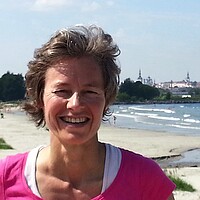A German neo-Nazi in the European Parliament? It could happen.
Loading...
| Frankfurt
Rarely in its 50-year history has the far-right National Democratic Party of Germany (NPD) felt as defiant as it did this week.
“In Germany, there's only one real opposition to the EU and the Euro cartel: the NPD,” said Udo Pastörs, the party chairman.
Mr. Pastörs's confidence is a marked change from last fall, when, beset by financial problems and government attempts to ban the NPD, the party failed once again to garner enough votes to pass the 5 percent threshold needed for representation in the Bundestag. The NPD, one of the oldest and more extreme far-right parties in Europe, has been described by Germany’s domestic intelligence agency as “anti-Semitic, racist, and xenophobic."
But the NPD's future now looks brighter, thanks to a decision by Germany's top court. By ruling that the country's 3-percent threshold to send parties to Europe was a violation of parties' right to be heard, the judges have paved the way for the NPD – and other small, marginal parties – to send representatives to the European Parliament.
Throwing open the door to the EU
In Germany's Weimar Republic, formed after World War I, the proliferation of parties was one of the factors that helped the rise of Adolf Hitler and the Nazi Party. As a result, after World War II, Germany adopted a voting threshold for parliamentary and local elections. Until this year, a similar threshold was applied to Germany's candidates for seats in the European Parliament, effectively keeping out small parties and fringe groups like the NPD.
But the constitutional judges in Karlsruhe in February ruled that a threshold for the European Parliament was less important than for domestic elections. The message Karlsruhe sent was that the European Parliament is not influential enough to need one, says Timm Beichelt, chair of European Studies at the Europa University Viadrina in Frankfurt an der Oder.
Angela Merkel's Christian Democratic Union and the Social Democrats sharply condemned the ruling, saying it would weaken the functionality of the European parliament at a time when right-wing Euroskeptic forces across Europe are predicted to get stronger this weekend. Absent the threshold law, German parties need only about 1 percent of the votes to get one of Germany's 96 European Parliament seats.
“It all boils down to how many smaller parties will get those 2 and 1.5 percent,” says Karsten Lucke, who heads Think Europe, a program promoting youth political engagement.
In last fall's federal elections, the NDP got only 1.3 percent of the votes, far behind the 5 percent threshold for the Bundestag. But a similar turnout this weekend would most likely win them a seat in Europe. And Alternative für Deutschland, the thriving one-year-old anti-Euro party that narrowly failed to be elected to the Bundestag, is almost guaranteed a seat if they perform as well as expected.
Moreover, says Mr. Lucke, the Karlsruhe court decision is a "godsend" for the Free Democrats, a former governing partner of Mrs. Merkel who were kicked out of Germany's parliament last fall. “They wouldn't have had any chance to reenter parliament, but now they're back on the political agenda,” he says.
Dr. Beichelt says that the threshold's end is not necessarily negative. Lifting the quota “will help mainstream parties to sharpen their arguments,” including against the fringe parties, he says.
Smaller parties' stake
Experts note that just because they have a seat in the European Parliament, the smaller German parties are not going to suddenly change things. For example, they are likely to lack governing experience and organizational skills needed to work with bigger groups and institute change.
And despite the other far-right parties expected to enter Europe, “it's difficult to see a sustained pattern of cooperation within that large Euroskeptic group,” says political scientist Kai Arzheimer of the University of Mainz. France's National Front, which has been seeking to build a far-right coalition, has already ruled out cooperating with the NPD.
For Germany's small parties, a seat in Brussels and Strasbourg is mostly a chance to reach a broader number of German constituents. Each seat comes with coveted money and media access. Representatives, who share their time between Brussels, Strasbourg, and their constituencies get paid 84,000 euros ($110,000) annually, in addition to funds for office expenses and travel. “The NPD is in a desperate position, and it's crucial for them to get that one [European Parliament] seat,” says Dr. Arzheimer.
But once the election is over, says Lucke, "it will be normal work again." In other words, railing against the institutions of Europe. “Their aim is not to work in the system,” he says. “They will show up on German TV shows and do some talking against the European Union.“





